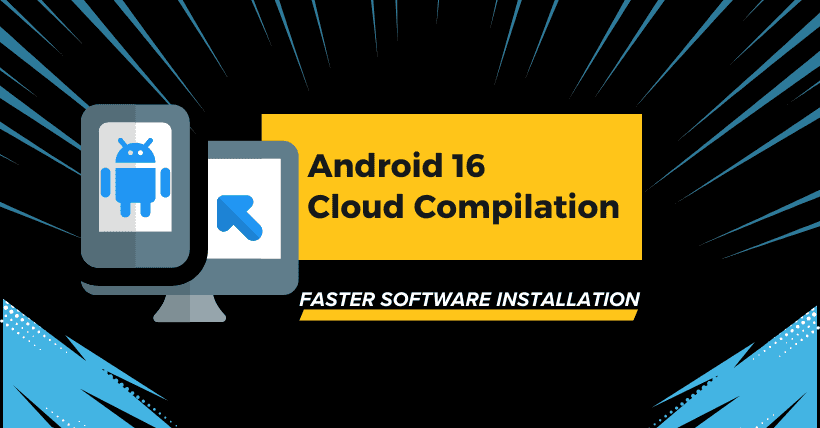Hello everyone, I’m your old friend, a tech blogger who has been playing with Android for many years. Today, let’s talk about a new feature in Android 16: cloud compilation. Can this really help low-end devices completely say goodbye to the embarrassing “installing for half an hour, opening in two minutes” issue? I’ll discuss it from three perspectives: technical principles, real-world experience, and future impact.
01
What is cloud compilation? Android is playing a “pass-the-buck” game this time.
The slow installation of apps on Android, especially the problem of low-end devices lagging like a PowerPoint presentation, is rooted in local compilation. Every time you install an app, the device has to convert the code in the APK into a machine-readable format (OAT file), a process known as dex2oat compilation. Low-end devices have weak CPUs and slow storage, so when encountering large apps (like games), the compilation can be so slow that it makes you question life.
Cloud compilation in Android 16 simply offloads the compilation work to Google’s servers. When you click “Install” in the app store, the cloud has already compiled the components using the dex2oat tool in advance. These are packaged together with the APK and downloaded to your phone. As a result, low-end devices don’t have to work hard; they just “eat the ready-made stuff,” so the installation speed naturally improves.
For example: Previously, if you used a budget phone to install (Genshin Impact), the compilation might take 5 minutes. Now, the cloud helps compile it in advance, and once downloaded, you can open it instantly, saving enough time to do two rounds of dungeons.
02
Can low-end devices really make a comeback? The real-world experience might be polarized.
Advantages:
- Visible speed improvement: Especially for apps with large amounts of code (games, video editing software), installation time can be shortened by more than 50%.
- Relieves hardware pressure: Low-end devices’ CPUs and storage face much less strain, and the background can still smoothly load short videos during installation.
- Extends device lifespan: Older phones don’t have to be forced into retirement because they “can’t handle new apps,” saving money.
Disadvantages:
- Increased data usage: The cloud-compiled components are larger, and the same app may consume 20%-30% more data. Users with small data packages may exceed their limits quickly.
- Increased reliance on network: If there’s no internet or a poor signal, cloud compilation can’t work, and the installation speed returns to pre-cloud compilation levels.
- Privacy concerns: The compilation process involves code analysis, and some worry that Google may “snoop” on app data. While there’s no solid evidence yet, it feels uncomfortable.
Google is quite clever, and initially, they might allow users to manually toggle cloud compilation on or off. Those with good networks and willing to use data can enable it, while others can turn it off, each according to their needs.
03
The truth behind the technology: Google wants to be the “general scheduler” of the Android ecosystem.
Cloud compilation may seem like a small feature, but it actually exposes Google’s desire for ecosystem control.
- Grabbing the lifeline of app distribution:
All compiled components are generated by Google’s servers, meaning developers must strictly adhere to Google’s standards. Otherwise, apps may face issues in the cloud compilation stage, indirectly forcing developers to “take sides.” - Paving the way for cloud-based operating systems:
Android 16’s cloud compilation is in line with previously exposed features like “cloud gaming” and “cloud apps.” Google is clearly testing the waters: moving as many computational tasks as possible to the cloud, with phones serving as mere display terminals. In the future, they might launch a “subscription-based cloud service” charging for computing power. - Forcing competitors into a race:
Domestic phone manufacturers have long relied on custom systems for differentiation. If cloud compilation becomes widespread, the low-end device experience will be equalized, and brands like OPPO, Vivo, and Xiaomi will either follow suit and develop their own cloud solutions or compete on hardware specs—either way, they’ll have to choose one.
04
Conclusion
After 5G becomes more widespread, cloud compilation may integrate with edge computing. For example, servers could be deployed near base stations to further reduce latency. In the future, when installing apps, the cloud might also customize optimized components based on your phone model, which would be more efficient than the current one-size-fits-all approach.

Disclaimer:
- This channel does not make any representations or warranties regarding the availability, accuracy, timeliness, effectiveness, or completeness of any information posted. It hereby disclaims any liability or consequences arising from the use of the information.
- This channel is non-commercial and non-profit. The re-posted content does not signify endorsement of its views or responsibility for its authenticity. It does not intend to constitute any other guidance. This channel is not liable for any inaccuracies or errors in the re-posted or published information, directly or indirectly.
- Some data, materials, text, images, etc., used in this channel are sourced from the internet, and all reposts are duly credited to their sources. If you discover any work that infringes on your intellectual property rights or personal legal interests, please contact us, and we will promptly modify or remove it.








